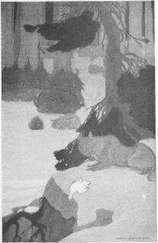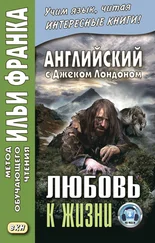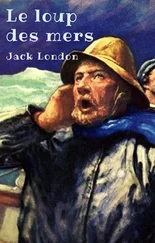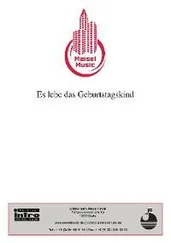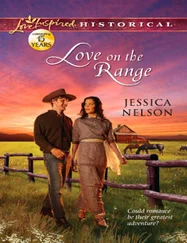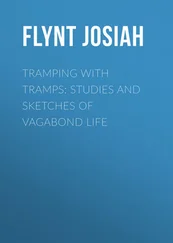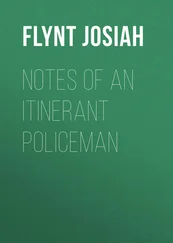Josiah Flynt - My Life
Здесь есть возможность читать онлайн «Josiah Flynt - My Life» — ознакомительный отрывок электронной книги совершенно бесплатно, а после прочтения отрывка купить полную версию. В некоторых случаях можно слушать аудио, скачать через торрент в формате fb2 и присутствует краткое содержание. Жанр: foreign_antique, foreign_prose, на английском языке. Описание произведения, (предисловие) а так же отзывы посетителей доступны на портале библиотеки ЛибКат.
- Название:My Life
- Автор:
- Жанр:
- Год:неизвестен
- ISBN:нет данных
- Рейтинг книги:5 / 5. Голосов: 1
-
Избранное:Добавить в избранное
- Отзывы:
-
Ваша оценка:
- 100
- 1
- 2
- 3
- 4
- 5
My Life: краткое содержание, описание и аннотация
Предлагаем к чтению аннотацию, описание, краткое содержание или предисловие (зависит от того, что написал сам автор книги «My Life»). Если вы не нашли необходимую информацию о книге — напишите в комментариях, мы постараемся отыскать её.
My Life — читать онлайн ознакомительный отрывок
Ниже представлен текст книги, разбитый по страницам. Система сохранения места последней прочитанной страницы, позволяет с удобством читать онлайн бесплатно книгу «My Life», без необходимости каждый раз заново искать на чём Вы остановились. Поставьте закладку, и сможете в любой момент перейти на страницу, на которой закончили чтение.
Интервал:
Закладка:
The fight was a fixed-up affair among three brothers, the second oldest being desirous of giving me a good hiding as a preliminary advertisement of his prowess. The four of us met by agreement in the alley behind "Rest Cottage," and my antagonist and I were soon at it. He was easily a half-head taller than I was, and a good deal stockier, but I think that I had said that I could whip him, and I honestly tried to make good. He remained cool and collected, delivering well directed and telling blows on my physiognomy. The gore ran from my nose, and tears of rage from my eyes, as never before or since. But I fought on blindly, hitting my adversary only occasionally, and even then with very little force. At last, utterly beaten and exposed, I ran from the field-of-battle, shouting back over my shoulder, "Bob'll do you all up, you spalpeens." My grandmother mopped my battered face, and tried to console me, but it was a hard task. I knew what she didn't know, that my bluff had been called, and that I was no longer an uncertain quantity in the village fighting world; I had been "shown up." For days I shunned my regular playmates, and I can say that after that defeat I never fought another mill, and I never expect to fight one again. In five minutes I was completely converted to the peace movement, and have earnestly advocated its principles from the day of the fight to this very moment.
When my aunt was at home "Rest Cottage," or rather her side of it, was a regular beehive of industry. Secretaries and typewriters were at work from morning till night, while my aunt caught up with her voluminous correspondence in her famous "Den." Although we did not always get on well together, almost invariably through my waywardness, I desire to say now, once and forever, that she was one of the most liberal minded women I ever knew; and as a speaker and organizer, I doubt whether in her time there was any woman who excelled her. Had she devoted her life to more popular subjects than temperance and woman's rights, literature, for instance, she would take very high rank to-day in the lists of great orators and writers. She preferred by conviction to devote herself unreservedly to the unpopular agitations, and her following was therefore found principally among women who agreed with her at the start, or who were won over to her opinions by her persuasive gift of language. In England, she was not infrequently likened unto Gladstone, and in Edinburgh, where she spoke during one of her visits to Great Britain, the students, after the meeting, unhooked the horses and themselves pulled her carriage to her hotel. Her statue in Statuary Hall in the capitol at Washington is the only statue of a woman found there; it was presented by the State of Illinois.
To live in a celebrity's home of this character was a privilege which, I fear, we children did not appreciate. It was a Mecca for reformers of all shades and grades from all over the world, and we children grew up in an atmosphere of strong personalities. The names of many of the men and women who visited our house have escaped me, but I recall very distinctly John B. Gough. On this occasion he was entertained by my mother, my aunt being absent from home. He was an old man with white hair and beard, and was in charge of a niece, if I remember correctly, who tended him like a baby. A local organization had hired him to speak for them in the "Old First." His speech was as successful as usual, and the church was crowded, but the old gentleman was tired out when he got back to the house, and was rather querulous. My mother had prepared a light supper for him of milk, bread and butter and the like, but it was not to his taste. "I need tea," he declared in no uncertain tones, and tea had to be made, the delay increasing the old agitator's impatience. On getting it, he found it too weak, or too strong, or too hot, and the upshot of the affair was that he left us rather out of sorts, but not before receiving $200, his fee for the lectures. He tucked the roll carelessly into a small overcoat pocket, and then took his leave. Old age had begun to tell on him very plainly, and not many years after he died.
Francis Murphy, John P. St. John, nearly all the later candidates for the Presidency on the Prohibition ticket, and of course the prominent women agitators of the time, found their way to "Rest Cottage," sooner or later. The place itself, although comfortable and cozy, was very modest in appearance, but it probably sheltered at one time or another during the last fifteen years of my aunt's life, more well-known persons than any other private home of the Middle West. My aunt also kept in touch with a great many people through her correspondence. She believed in answering every letter received even if the reply were shipped back with deficient postage, and she knew by letter or personal acquaintance all the great men and women of her day, that I have ever heard of. If an author's book pleased her, she wrote him to that effect, and often vice versa . On the appearance of Edward Bellamy's "Looking Backward" she was distressed that he had not eliminated alcoholic beverages from the programme of his Utopia, and wrote him to this effect. He replied, very simply, that the thought had not occurred to him, which must be his excuse, if excuse were necessary, for overlooking the matter.
In the village my aunt was easily the main citizen of the place so far as fame went. There were many who did not agree with her notions of reform, but the village, as a whole, was proud to have such a distinguished daughter.
When criticising my escapades and backslidings, my aunt, I have been told, was wont to say that, "Josiah has character and will power, but he wills to do the wrong things." No doubt I did. If companions joined me in a runaway bout, it was I, as a rule, who planned the "get-away"; only on one or two occasions was I persuaded by others. More or less the same motives actuated me in running away from "Rest Cottage" as had formerly prevailed when living in the old brown house, but I am inclined to think now that, consciously or unconsciously, I would get tired of living entirely with women, and that this also may have had something to do in starting me off. Except when my brother was at home, which was at this time only infrequently, I was the only male human being living at "Rest Cottage"; from grandmother down to my younger sister all the other inmates were females, and there was a feminine atmosphere about things which used to get on my nerves more than my mother realized. My dogs – I generally had two – were males, and many is the consolatory stroll we have taken if for no other reason than to consolidate our forces.
My love of dogs goes back as far as I can remember, and I have always tried to have some representative of this species around me. The dog who stood by me at "Rest Cottage" and helped me to increase the masculine forces, was called "Major." Not only because he was my constant companion, but also because he was the source of one or two "spats" between my aunt and myself, determines me to tell his story, or at least what I know of it.
One evening, my mother returned late from the city accompanied by a burly, black dog. I afterwards decided that he was a cross between a Shepherd and a Newfoundland. "I've brought you a dog," said mother, and I jumped up with glee, being quite dogless at the time. The dog snarled, and drew close to my mother. In fact, he sat at her feet throughout the evening meal, refusing to have anything to do with me, although he accepted in very friendly fashion the advances of my sisters. I concluded with disappointment that he had been a woman's dog. My mother told us how she had come by him. "On leaving the depot in town," she said, "and starting for my office, this dog jumped suddenly before me, barked, and evidently, from his actions, took me for his mistress. I patted him, and went along to the office – the dog followed. He went up to my office, and when I took my seat at my desk, he made a place for himself near-by. At noon time I shared my lunch with him. He spent the afternoon very decorously either under or near the desk.
Читать дальшеИнтервал:
Закладка:
Похожие книги на «My Life»
Представляем Вашему вниманию похожие книги на «My Life» списком для выбора. Мы отобрали схожую по названию и смыслу литературу в надежде предоставить читателям больше вариантов отыскать новые, интересные, ещё непрочитанные произведения.
Обсуждение, отзывы о книге «My Life» и просто собственные мнения читателей. Оставьте ваши комментарии, напишите, что Вы думаете о произведении, его смысле или главных героях. Укажите что конкретно понравилось, а что нет, и почему Вы так считаете.

